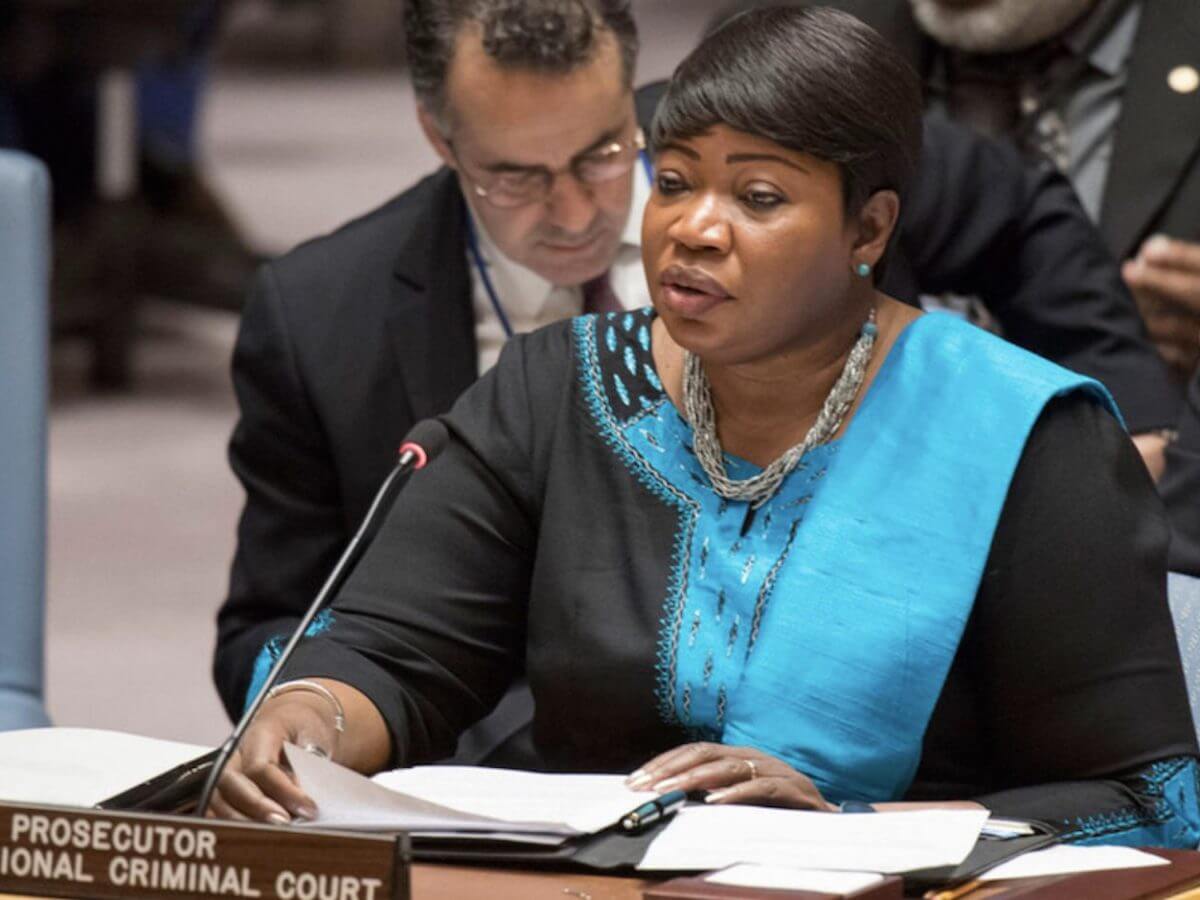The International Criminal Court’s (ICC) chief prosecutor, Fatou Bensouda, on Monday said the permanent international war crimes tribunal’s relationship with the United States (US) is currently undergoing a “reset” under the new administration of President Joe Biden. In an interview with the Associated Press (AP) held at The Hague on the eve of vacating her post after her nine-year term as the ICC’s chief prosecutor, Bensouda spoke of the transition in the tribunal’s relationship with the US after former president Donald Trump left office in January.
Referring to the sanctions imposed on her by Trump, whic Biden recently repealed, Bensouda told AP: “In the first instance, I do believe that it was wrong, really a red line has been crossed to sanction, not Fatou Bensouda personally, but to sanction the prosecutor of the International Criminal Court when she is trying to do her work that she’s mandated to do. So for me, that shouldn’t happen. That should not have happened.”
In September 2020, the Trump administration had imposed sanctions on all ICC employees involved in investigating war crimes committed by the Taliban, the Afghan government and US troops in Afghanistan between 2003 and 2014. The restrictions involved blocking their assets and entry into the US, and even extended to family members of ICC officials. The Trump administration also extended the punitive measures to include Bensouda and the head of the ICC’s Jurisdiction, Complementarity and Cooperation Division, Phakiso Mochochoko.
Trump’s Secretary of Defence, Mark Esper, claimed that the US “armed forces would never appear before the ICC, and nor will they ever be subjected to the judgments of unaccountable international bodies.” Likewise, National Security Adviser Robert O’Brien said the US was capable of conducting its internal investigations. At the time, the ICC responded by criticising the US’ “unacceptable attempt to interfere with the rule of law” by aiming to ‘influence’ the “actions of ICC officials.”
Since the inauguration of Biden, however, Washington has made repeated overtures to rebuild alliances and reaffirm its trust in multilateralism, which is believed to have informed its decision to revoke Trump’s executive order. Biden withdrew Executive Order 13928 on “Blocking Property of Certain Persons Associated with the International Criminal Court (ICC)” in April to make amends.
Bensouda welcomed this change in the US’ attitude since Biden took office. She said, “We are at a more helpful place now because the Biden administration has decided to lift those sanctions, and both the administration and ourselves are working on some reset that is the relationship between the ICC and the US administration.”
Despite reverting the sanctions, Washington has refused to join the ICC or ratify the Rome Statute. In a press statement released in April, Secretary of State Antony Blinken made clear that the US continues to strongly disagree with some of the ICC’s actions relating to Afghanistan and Palestine. “We maintain our longstanding objection to the Court’s efforts to assert jurisdiction over personnel of non-States Parties such as the United States and Israel. We believe, however, that our concerns about these cases would be better addressed through engagement with all stakeholders in the ICC process rather than through the imposition of sanctions,” he wrote.
In this regard, Bensouda said this continued hesitation on Washington’s part has not stopped her from pursuing the case and meeting Afghan Foreign Minister Haneef Atmar last month to discuss the details. “I’ve always said that we will go to where the evidence leads us. If there is evidence that these crimes fall within the jurisdiction of the ICC, no matter where it happens, the ICC will look into those cases. And I think now we have demonstrated that. We have demonstrated that it’s the evidence that matters, and not because there is a design by ICC to have cases in Africa,” she said.
The prosecutor concluded the interview by saying that “If we’re serious about international criminal justice, if we are serious about bringing justice to the victims, we also need to provide the court with the resources that it needs to do that work.”
ICC Chief Prosecutor Bensouda Says Ties With US Undergoing “Reset” Under Biden
In an interview with the Associated Press, ICC prosecutor Fatou Bensouda spoke of the transition in the ICC’s relationship with the US, after former president Donald Trump left office in January.
June 16, 2021

SOURCE: UN
